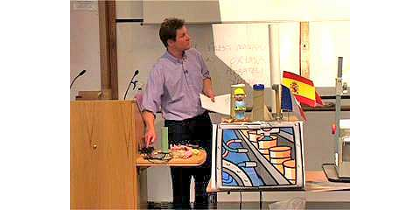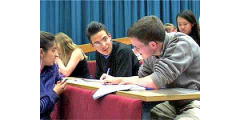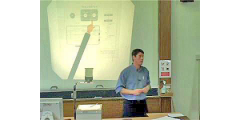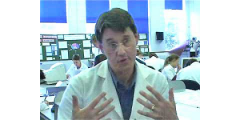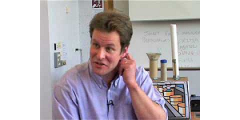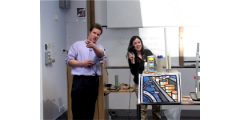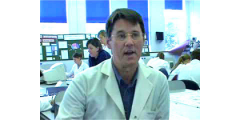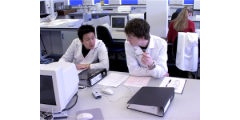Linking research and teaching
February 21, 2007
Video >> Ed: “Normally we are lecturing in courses where we do research, on the whole we do. In engineering particularly we have a real problem in recruiting engineers to do PhDs and getting a good one is even harder. “So it’s part of my philosophy, that wherever possible we talk about research in the …
Questions and activities in lectures
Video >> Kate: “Can I ask you about asking the students questions in lectures, why do you do it and what do you think are the benefits?” Ed: “Probably because the attention span of the average person is in the order of minutes. You have got to do anything you can to get them to …
Structure, pace and activities in lectures
Video >> Extract from a lecture Ed: “I just want to do a quick reminder of what we talked about this morning and how things actually get sorted and the basic problems arise, or at least legislation about air pollution has arisen out of a sequence of events over obviously several hundred years as we dealt …
Handouts for learning in lectures
January 31, 2007
Video >> Kate: “In the lecture, you were using a number of different audio-visual and other teaching resources. What do you use and why do you use those particular kinds of resources?” Martin: “Science courses are very content-laden. In some ways that’s a strength but in some ways it’s a problem. There’s often a lot of material …
In conversation with Lord Dearing Award Winners: Ed Lester, Chemical, Environmental and Mining Engineering
Video >> Kate: “Can I ask you about asking the students questions in lectures, why do you do it and what do you think are the benefits?” Ed Lester: “Probably because the attention span of the average person is in the order of minutes. You have got to do anything you can to get them to think …
In conversation with Lord Dearing Award winners: Martin Luck, Biosciences
Video >> Kate: “In a subject such as yours, what do you think are the main purposes of running practical classes for your students?” Martin: “The main purpose in this case is to reinforce the material that we’ve dealt with in the lecture. The lectures are good for describing concepts and explaining principles, but in a …
Demonstrating principles using activities in lectures
Video >> Kate: “The last thing I wanted to ask you about was the demonstrations and bringing that into a classroom. What are the pros and cons of doing something like that, do you think, in terms of for the students and for the lecturer?” Ed: “The con might be that it goes wrong. There …
Classroom management and mobile phones
Video >> Martin Luck: “I think it takes a while to build up an armory of methods for dealing with these situations. How do you deal with a mobile phone when it goes off? How do you deal with late comers? How do you deal with somebody suddenly getting up and going in the middle …
Assessment: in class multiple-choice
Video >> Julian: “If they are making any errors of description then we can talk them through ‘that’s not really the gizzard that’s the ovary’. So talking them through and helping it, at the end of it we get a multiple choice questionnaire which we ask them to complete, based on both the lab and …
“Please turn on your mobile phones” – ubiquitous computing in the classroom
January 30, 2007
Mette Asmild, Andrew Jackson, Benson Lau and Nick Mount: “The adoption of the mobile telephone has revolutionised social and commercial communication in the 21st Century. Whilst it is estimated that the majority of students in British higher-education (HE) use mobile-‘phones and text/SMS-messaging, the learning benefits of adopting and supporting mobile ‘phone text-messaging communication from students …

